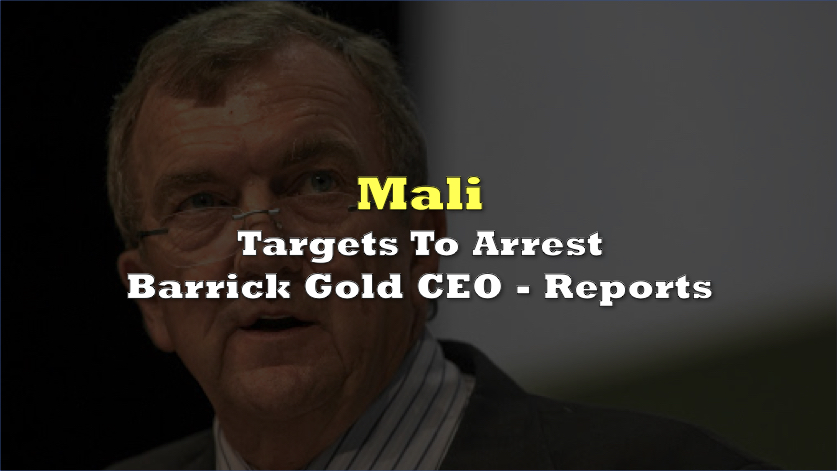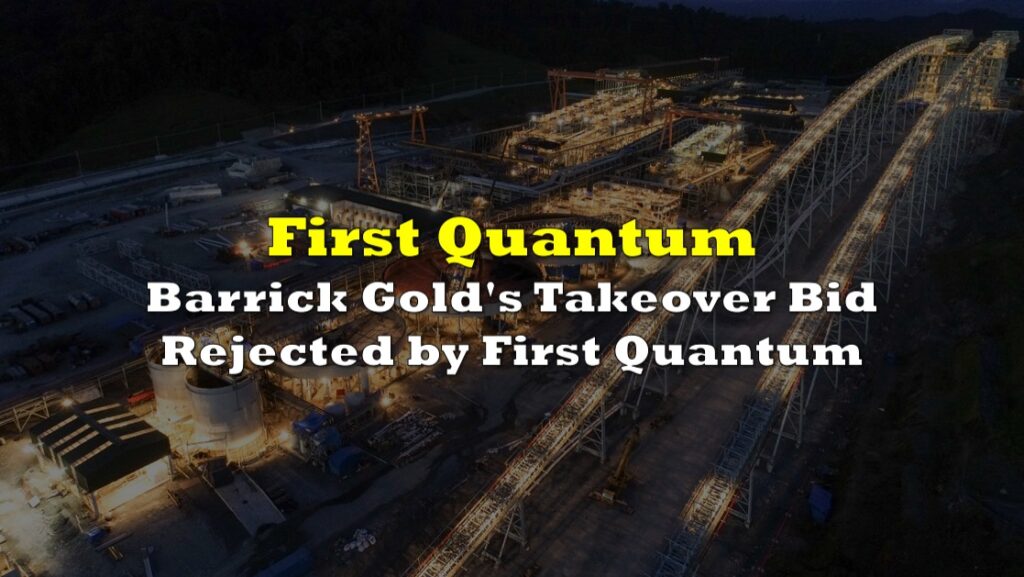Mali has issued an arrest warrant for Mark Bristow, CEO of Barrick Gold Corporation (TSX: ABX), accusing him of money laundering and financial violations. The allegations mark the latest escalation in tensions between the West African nation and foreign mining operators as the government pursues an aggressive campaign to extract greater revenue from its mineral resources.
The warrant, dated December 2, was first reported by Malian media and confirmed by Reuters. Barrick Gold has stated it “will not be commenting” on the situation.
Mali, one of Africa’s largest gold producers, has become a flashpoint for disputes over mining revenues. The military-led government, in power since a 2020 coup, has enacted policies to increase state control over mining operations, including revising the country’s mining code to raise the government’s stake in mining projects from 20% to 35%.
Barrick Gold, which operates the Loulo-Gounkoto complex in western Mali, has faced significant pressure. The government has demanded $512 million in unpaid taxes and dividends, according to sources familiar with the matter. The claim covers retroactive payments from 2020 to 2022 and follows a government audit of mining contracts.
Bristow had expressed optimism in early November, stating that Barrick was working to resolve disputes before year-end. However, four employees from Barrick’s Loulo-Gounkoto operations were arrested in late November and remain detained pending trial.
The charges against Bristow are rooted in allegations of money laundering and violations of financial regulations, although details remain scarce. Sources indicate the government may view the charges as leverage in its broader tax dispute with Barrick.
Barrick has previously rejected the $512 million claim as “without merit.” In its 2023 annual report, the company noted it had received a tax collection notice for $417 million, which it similarly disputed.
This is not the first time Mali’s military government has detained or targeted executives of foreign mining companies. In November, the CEO and two employees of Australia’s Resolute Mining Ltd. (ASX: RSG) were detained during meetings with Malian officials over a $160 million tax dispute. They were released only after Resolute agreed to a settlement. Allied Gold Corp. (TSX: AAUC) also recently agreed to pay $116 million to settle financial obligations, highlighting the junta’s increasing assertiveness in extracting payments from mining firms.
In a statement last month, Bristow emphasized Barrick’s commitment to resolving disputes through dialogue: “Our attempts to find a mutually acceptable resolution have so far been unsuccessful, but we remain committed to engaging with the government to resolve all claims levied against the company and its employees and to secure the early release of our unjustly imprisoned colleagues.”
With tensions running high, it remains uncertain whether Barrick will pursue a settlement similar to Resolute Mining’s or continue to dispute the claims through legal channels.
Gold is critical to Mali’s economy, accounting for approximately 10% of its GDP and 70% of its export revenues. The Loulo-Gounkoto complex, co-owned by Barrick (80%) and the Malian government (20%), produces around 510,000 ounces of gold annually.
Under military rule, Mali has relied heavily on mining revenues to offset economic challenges exacerbated by international sanctions and the withdrawal of Western financial aid. The junta’s focus on retroactive taxes and renegotiated mining agreements is seen as an attempt to stabilize the economy amid limited access to debt markets.
Mali’s assertive stance toward foreign mining companies reflects broader geopolitical and economic shifts. Since the 2020 coup, the country has deepened ties with non-Western actors, including the Russian-backed Wagner Group. This realignment, coupled with the departure of European forces and UN peacekeepers, has isolated Mali from traditional allies and financial systems.
The junta’s approach to mining revenues, while offering short-term economic relief, could have lasting repercussions on Mali’s reputation as a stable destination for investment.
Information for this story was found via Reuters, Mining.com, and the sources mentioned. The author has no securities or affiliations related to the organizations discussed. Not a recommendation to buy or sell. Always do additional research and consult a professional before purchasing a security. The author holds no licenses.









